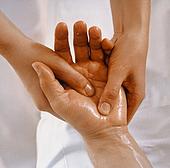Written by Jack Kelly, CAP, NLP, LHMP
The bad news
Biology teaches us that human beings are Homo Sapiens, baboons with intellect. But there’s a big difference between a baboon and a human being. A baboon is totally driven by instincts. If a baboon is hungry or thirsty it cannot make a conscious decision to abstain from anything. Baboons are slaves to their impulses.
The bad news for those of us who have an addiction to a substance or activity is that while we are active in our addiction we lose our humanity because our brain (intellect) gets hijacked. The following quote exemplifies that under the influence of a substance one behaves against their better judgement: “I know I can lose my job, marriage, and driver’s license, but I can’t stop drinking or using drugs.” Basically, we become baboons. We become enslaved to a substance or activity. We are driven by impulses and instincts. Obsessive thoughts, compulsive feelings, and physical cravings rule our lives.
Actually, baboons may have a leg up on us because they don’t wallow in self-pity. Unlike humans, they don’t carry rocks of resentments, anger, anxiety, depression, guilt or shame on their back. They don’t have the mental and emotional baggage that comes with addiction as this quote indicates: “We were driven by a hundred forms of fear, self-delusion, self-seeking, and self-pity.” (Alcoholics Anonymous, Page 62)
The good news
In the first book of the Bible, it says: “Let Us make man in Our image, according to Our likeness; and let them rule over the fish of the sea and over the birds of the sky and over the cattle and over all the earth, and over every creeping thing that creeps on the earth.” (Genesis 1:26)
I believe it is safe to conclude that we, who have the power to rule over the birds, fish, cattle and insects also have the power to – rule over ourselves. We can be masters of our impulses, instincts, and passions. We do not have to be enslaved by them, but that is exactly what happens when we get addicted to pills, alcohol, illegal drugs, gambling, sex, pornography, etc. Nowhere is enslavement more absolute than in addiction. If you want to see what this looks like, watch the movie UNGUARDED. It’s about Chris Herren who made millions of dollars playing for the Boston Celtics, but ended up broke and homeless as a result of his addiction to drugs.
The ‘Twelve Step Program’
Alcoholics Anonymous (A.A.) came on the scene in 1935 and proposed the first Twelve Step Program. Today, more than 250 Twelve Step Programs built on that foundation are available. Like for baboons, the lives of the original members of A.A. were driven by impulses and instincts which created a great deal of pain and suffering in their lives, and the lives of those they loved. The solution they found enabled them to become free from the slavery of addiction. The solution had two parts: “We work out our solution on the spiritual as well as the altruistic plane.” (A.A., Page xxvi)
How did the original members of A.A. break the chains of addiction? How did they make the transition from slavery to freedom; from being a baboon to a human being who could abstain from picking up a pill, drink, or an illegal drug? They created a Recovery Power Mindset which had two parts:
- “We were willing to go to any lengths to achieve victory over alcohol.” (A.A., Page 76)
- “We were willing to go to any lengths to find a spiritual experience.” (A.A., Page 79)
Victory is a simple concept. It’s easy to understand. Here’s how the original members of A.A. defined it: “The problem has been removed. It does not exist for us. It’s gone.” (A.A., Page 85)
The reality
Unfortunately, you rarely, if ever, hear the above message at meetings because the Recovery Power Mindset has now been replaced with the Recovery Powerless Mindset:
- You are powerless over your addiction. (Step 1 of Narcotics Anonymous)
- You will never recover. You will always be recovering – which is in sharp contrast to the message delivered by the original member of A.A. “We of Alcoholics Anonymous are more than one hundred men and women who have recovered from a hopeless state of mind and body.” (A.A. Page xiii )
- You have a disease that wants to kill you. It’s doing jumping jacks and push-ups; just waiting for the opportunity to take you out.
- You have a disease that speaks to you. (I believe this disease is limited to paranoid schizophrenics.)
The message of hope that was passed on to us by the original members of A.A. has been replaced with a message of hopelessness. So, one of the reasons we have such a high relapse rate is that the truths presented to us by the original members of A.A. have been replaced with myths. That’s why I wrote the book:
RADICAL RECOVERY: Twelve Recovery Myths – The Addiction Survivor’s Guide To The Twelve Steps.
Debunking the first myth
Let’s clear up one of those myths. When the original members of A.A. said they were powerless over alcohol, they weren’t referring to beer, vodka, scotch, wine, or whiskey! They were referring to alcohol obsession as highlighted in the quote below.
“Step One showed us an amazing paradox: We found that we were totally unable to be rid of the alcohol obsession until we first admitted that we were powerless over it.” (Twelve Steps and Twelve Traditions, Page 107)
This brings us back to the fact that the brain gets hijacked when we are addicted to a substance.
For more information, you can visit Jack’s website: www.thelazarushouse.net or contact him by email: jack@thelazarushouse.net




